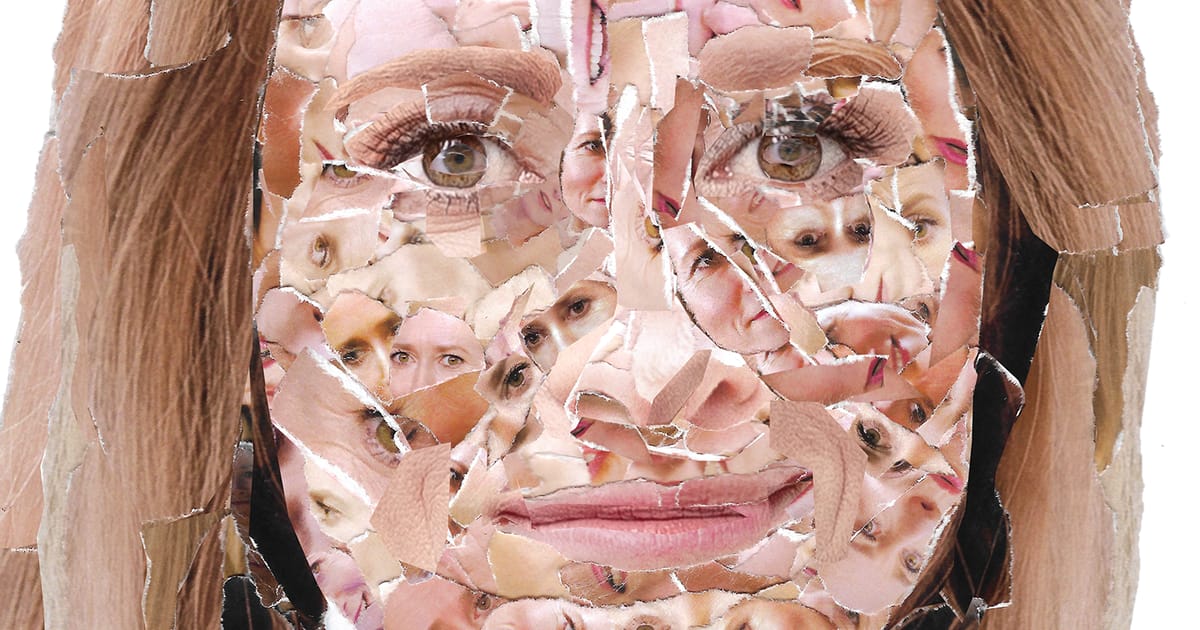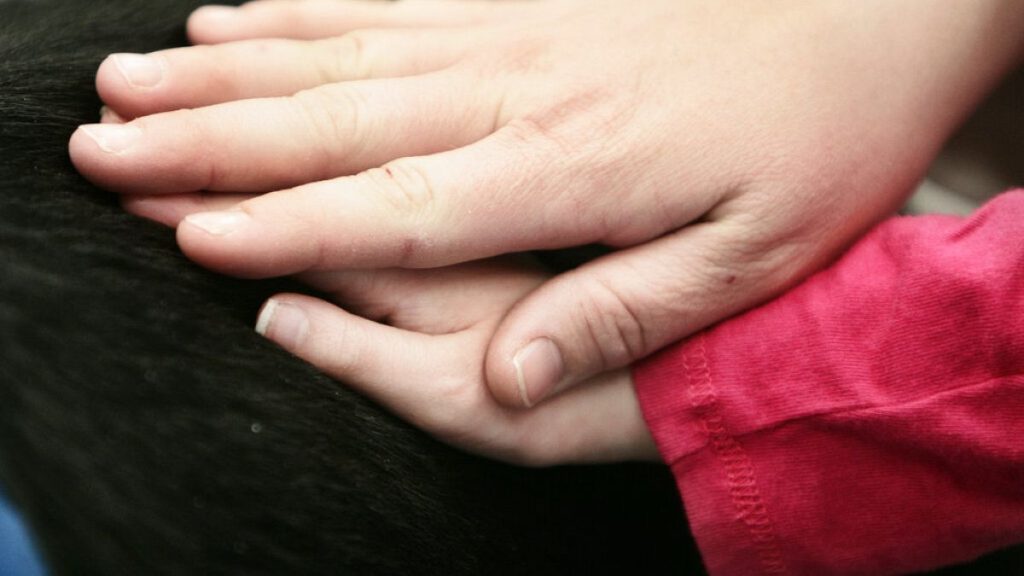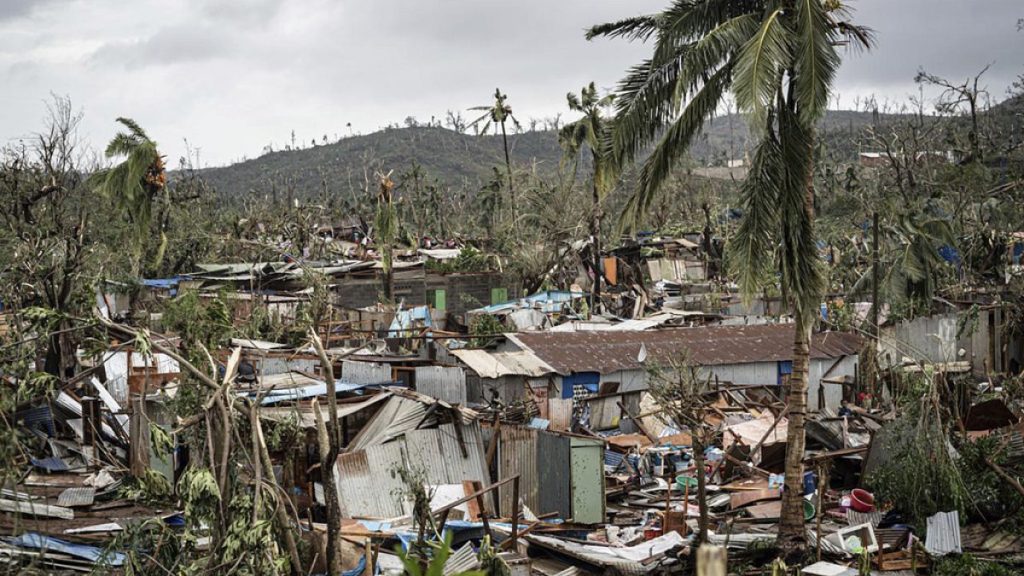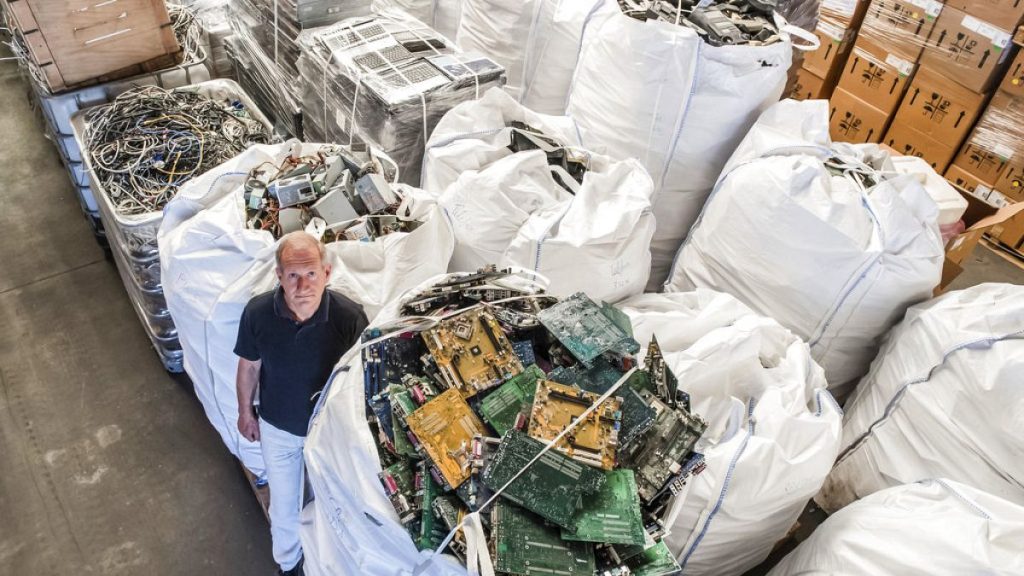In June 2021, just five months into her stint as Estonian prime minister, Kaja Kallas walked into the headquarters of the European Council to confront Europe’s most powerful leader.
As media headlines warned of Russian troops massing on the border of Ukraine, then-German Chancellor Angela Merkel wanted to invite Russian President Vladimir Putin to an upcoming summit of European Union leaders in Brussels.
The idea had the backing of French President Emmanuel Macron, and Merkel intended to push it through during a meeting of the European Council in Brussels.
Kallas wasn’t having it.
“A summit on what?” she asked in front of all the EU leaders, according to two diplomats. Putin, she stressed, could not be trusted, and should be neither accommodated nor appeased.
“What is it for?” repeated Kallas, who could count on the support of several other Eastern European countries.
Merkel, unable to pull off her plan without at least the grudging consent of her fellow leaders, backed down.
As the German chancellor left the room, Macron was in disbelief that a new leader from a small EU country had dared humiliate Merkel, at that time the bloc’s main power player.
According to one diplomat, the French president turned to Kallas and, hinting she might face backlash, asked: “Will you still be prime minister tomorrow?”
Three years later, it’s Merkel who has had to make way and Kallas who’s gotten a promotion. On Dec. 1, Kallas became the EU’s high representative for foreign affairs and security policy, making her the bloc’s top diplomat.
Nominated in June by her fellow EU leaders — including Macron — Kallas will have her work cut out for her. Not only is she taking office during a period of historic geopolitical upheaval, but the job itself is one in which her predecessors have struggled to make a mark.
Her portfolio will require her to balance the interests of the EU’s 27 countries, each of which has traditionally enjoyed a veto on matters of foreign affairs. With a reputation as one of Europe’s fiercest Russia hawks, Kallas — who declined to be interviewed for this article — will have to overcome the widespread preconception that she’ll be a single-issue foreign policy chief.
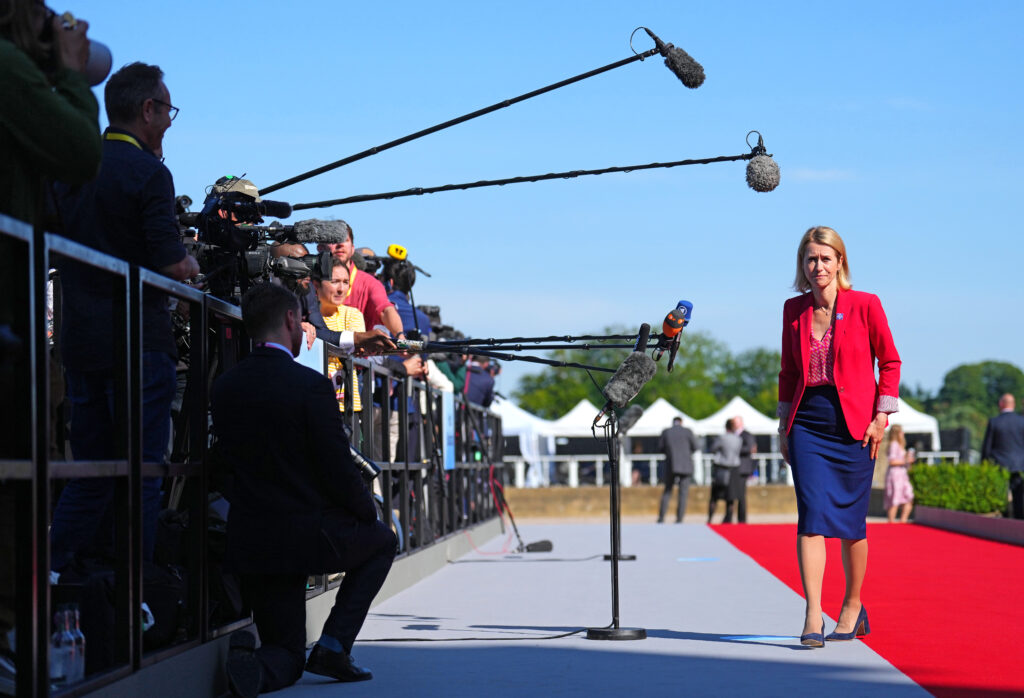
“If you ask Kallas where Africa is, she might tell you it’s south of Russia,” quipped a senior European diplomat earlier this year.
The Estonian firebrand has one important advantage, however: Expectations are low. Very low. The outgoing officeholder, Josep Borrell, is an aging Spanish socialist who spent most of his tenure at odds with his boss, European Commission President Ursula von der Leyen.
A former foreign minister who tends to shoot from the hip, Borrell will be remembered both for his passion (such as in condemning Israel’s attacks on Gaza) and for his missteps, including a press conference in Moscow where he stood mutely as Russia’s foreign minister spouted propaganda and described the EU as an “unreliable partner.”
Top aides to 10 EU foreign ministers, current and past, who spoke to L’Observatoire de l’Europe anonymously, were hopeful regarding Kallas’ appointment, noting the impact she had had on the world stage as prime minister of Estonia, a country of 1.4 million people sandwiched between Russia and the Baltic Sea.
Under Borrell, EU diplomats complained that meetings of the EU’s 27 foreign ministers were long, discursive or scripted. Kallas, according to a senior official, is expected to ask the ministers to come to the meetings with fresh ideas, to encourage spontaneous conversation and to zero in on strategic issues.
“Kallas will be a breath of fresh air,” a foreign minister from a Western European country said.
“Breathe the air of freedom,” Kallas’ father told her in 1988. The family had been allowed to leave Estonia to holiday in East Berlin; from where they stood at the Brandenburg Gate — marking the boundary of Soviet-occupied Europe — they could see West Berlin.
Patriotism and political defiance run in Kallas’ blood. Her great-grandfather, Eduard Alver, was the commander of the Estonian Defence League, leading the battle against the Soviet Red Army during the country’s 1918-1920 War of Independence.
After Estonia was occupied by the Soviets during World War II, her grandfather was sent to a prison camp. Her mother, then a six-month-old baby, was deported to Siberia.
Following the Soviet Union’s collapse in 1991, Kallas’ father, Siim Kallas, became foreign minister in 1995, then prime minister in 2002 before being named Tallinn’s first-ever European commissioner in 2004 when Estonia joined the EU. He held the post for a decade.
Kallas’ initial instinct was to stay far from politics. In an interview with L’Observatoire de l’Europe, Ülo Kallas, her older brother, recalled: “What was a crucial point for both Kaja and me is that we both wanted to establish our own career, not on the back of our father.”
Kallas specialized in competition law, a field that at the time, like many others, was dominated by men. But “she always blended in and felt like an equal,” said Sten Luiga, a lawyer who first met Kallas when she joined his firm as a trainee in the 1990s. The two were later partners at a different firm. “She was very energetic. I don’t remember ever seeing her tired or exhausted.”
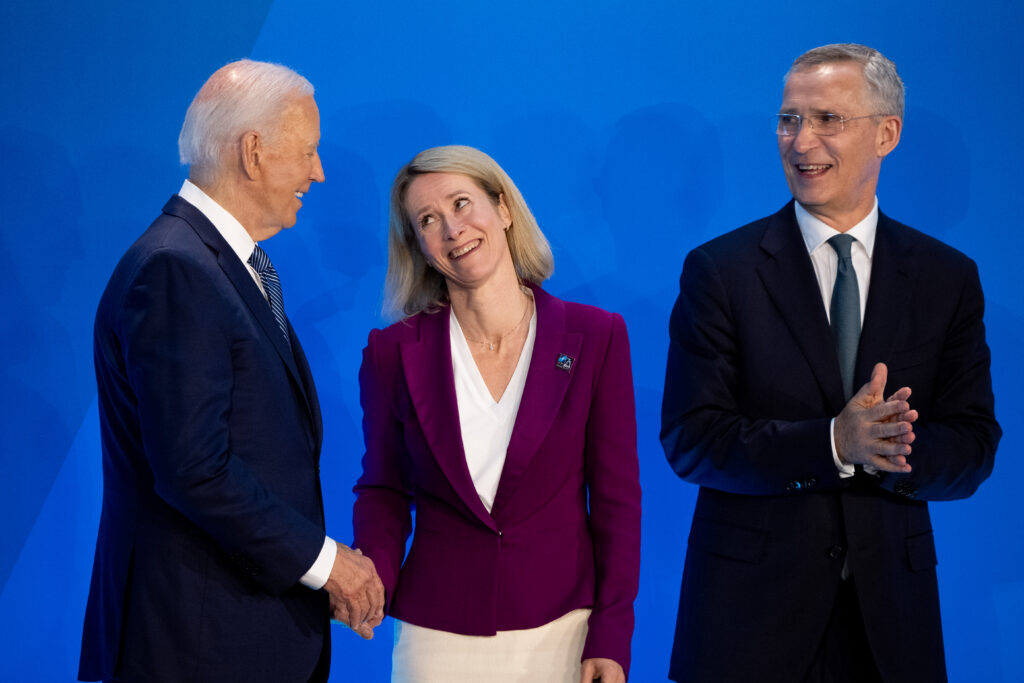
Despite her success as a lawyer, it was clear to those who knew her that Kallas wanted something else. “I remember her being at the peak of her career and saying, ‘I’m not feeling satisfied and I want to do something completely different,’” her brother said. “She was big on golf at the time, and one of the things she was thinking (was), ‘Maybe I want to go and become a golf caddie for some time in Australia.’”
However, the lure of politics proved more attractive than Bondi Beach. Kallas was elected first to the Estonian parliament in 2011 and then to the European Parliament in 2014.
“The life of a partner at a law firm is: You earn money, time becomes billable hours,” said Luiga, the former legal colleague. “I think these types of things didn’t motivate her that much. She wanted to have a bigger impact.”
That idealism, on top of her staunch dedication to the values of democracy and openness, makes her the antithesis of the realist, strongman politics embodied by the United States’ next president, Donald Trump. But it’s another man, Putin, who is her main political foil and, paradoxically, her biggest political asset.
As Western European leaders fretted about provoking the Russian president by supporting Ukraine in the wake of his 2022 full-scale invasion, Kallas was relentless in calling them to task and coming as close as she could to explicitly saying: “I told you so.”
“Putin will come to test us, and yes, we will have to resist,” Kallas told the European Parliament in 2022, two weeks after Russian troops invaded Ukraine. “We also have some experience with Russia — which we have been trying to share with the European Union since we joined.”
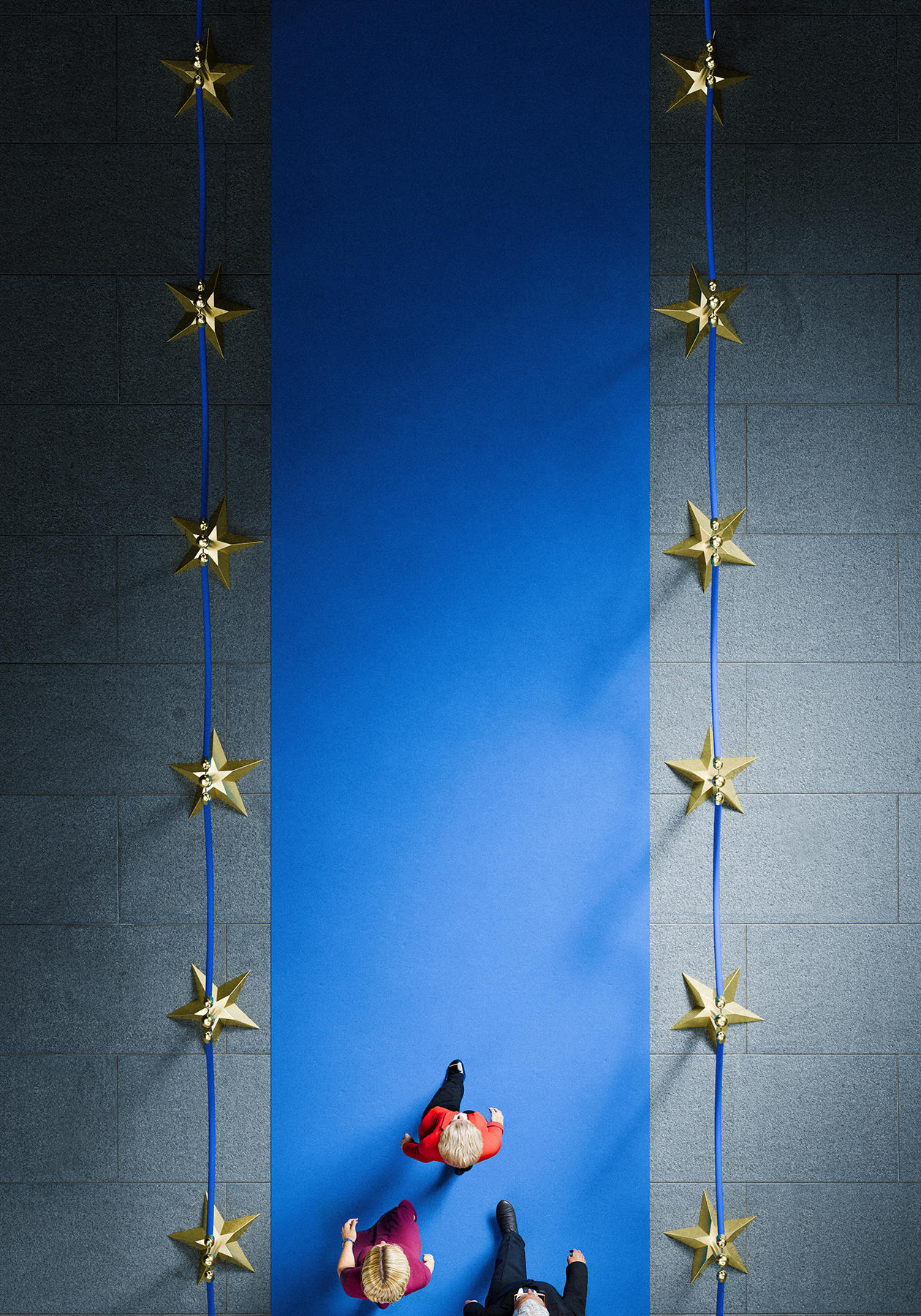

In a widely circulated video filmed in 2022 at the Munich Security Conference, she broke down — in less than a minute — the Kremlin’s negotiating tactics: “First, demand the maximum … Second, present ultimatums. And third, do not give one inch in negotiations, because there will always be people in the West who will offer you something.”
Under Kallas, Estonia pushed the EU to set quantifiable targets in its support for Kyiv. That included advocating an EU target to send Ukraine 1 million rounds of ammunition, and earmarking frozen Russian assets for its reconstruction. Estonia has also been spending above 3 percent of GDP on defense since the war started — well over NATO’s goal of 2 percent — and earmarking 0.25 percent of GDP solely for the purposes of aiding Kyiv.
“I wanted Estonia to lead by example,” Kallas wrote in a letter to members of the European Parliament before her nomination hearing. “Russia’s imperialistic dream never died.”
The Kremlin has taken notice. In April 2023, it put Kallas on its wanted list, formally for her government’s decision to take down Soviet-era war monuments. It was the first time an EU leader was included on the blacklist, which also named Ukrainian President Volodymyr Zelenskyy.
“This is yet more proof that I am doing the right thing,” an unfazed Kallas wrote on X. “The Kremlin now hopes this move will help to silence me and others — but it won’t.”
The question hanging over Kallas is to what extent she’ll be able to continue to make waves in her new role.
Estonia may be a small country, but when she was head of a sovereign state, she was free to speak her mind. As high representative, she’ll run the European External Action Service, the bloc’s diplomatic wing, a role which in practice comes with more limitations than actual power.
Technically, the EU’s high representative for foreign affairs isn’t even in charge of foreign policy. To formulate an official EU stance, she’ll have to get every national government to sign off, including leaders who have opposing views on Putin, such as Hungarian Prime Minister Viktor Orbán.
“High representatives have not always been visible or effective or powerful,” Jeppe Kofod, a former Danish foreign minister, put it diplomatically. “It depends a bit on the personalities but also on how much space they get from the 27 member states.”
As a result, EU statements tend to be watered down to the point of weakness if not irrelevance, as noted by a popular account on X, @ISEUConcerned, which lists every time the high representative or other foreign policy officials respond to a faraway tragedy with “concern.”
“We sometimes lack muscles,” Kofod conceded. “It’s hard to always be taken very seriously when you also have member states running their own foreign policy agenda on the side.
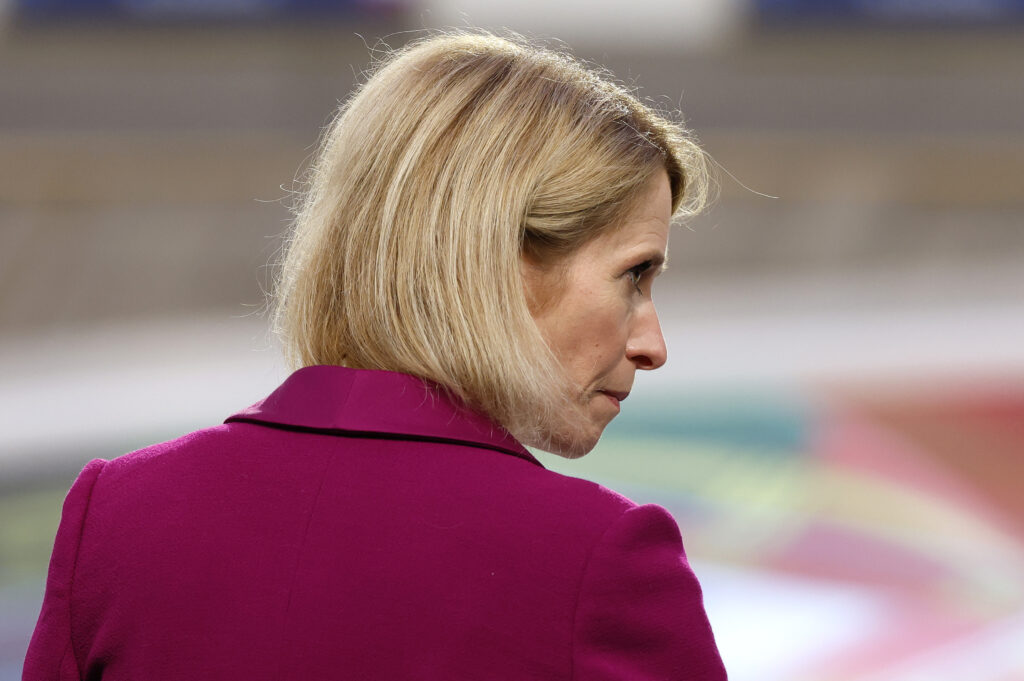
A standoff at a NATO summit in July suggests Kallas, diplomat or no, will not be mincing her words when she faces Russia’s sympathizers.
As the military alliance gathered in Washington, Hungarian Prime Minister Viktor Orbán was already in the doghouse for traveling to Moscow earlier that month. Adding fuel to the fire, he told the assembled leaders, which included Zelenskyy, that Ukraine should never be admitted to the alliance.
It was, in the words of someone in the room, a “very rude” moment.
Kallas was next to take the floor. “She dropped the prepared speech,” a diplomat recalled. “She answered Orbán directly, saying how wrong he was and that history and facts show that NATO’s aim is to avoid wars, and not to provoke (conflict).”
After Kallas, several other leaders followed her example by casting aside the notes prepared by their staff and speaking out against Orbán.
“She will be ready, and she has all the skills and all the knowledge that you need for that job,” said Estonian Defense Minister Hanno Pevkur, who worked alongside Kallas for most of her premiership.
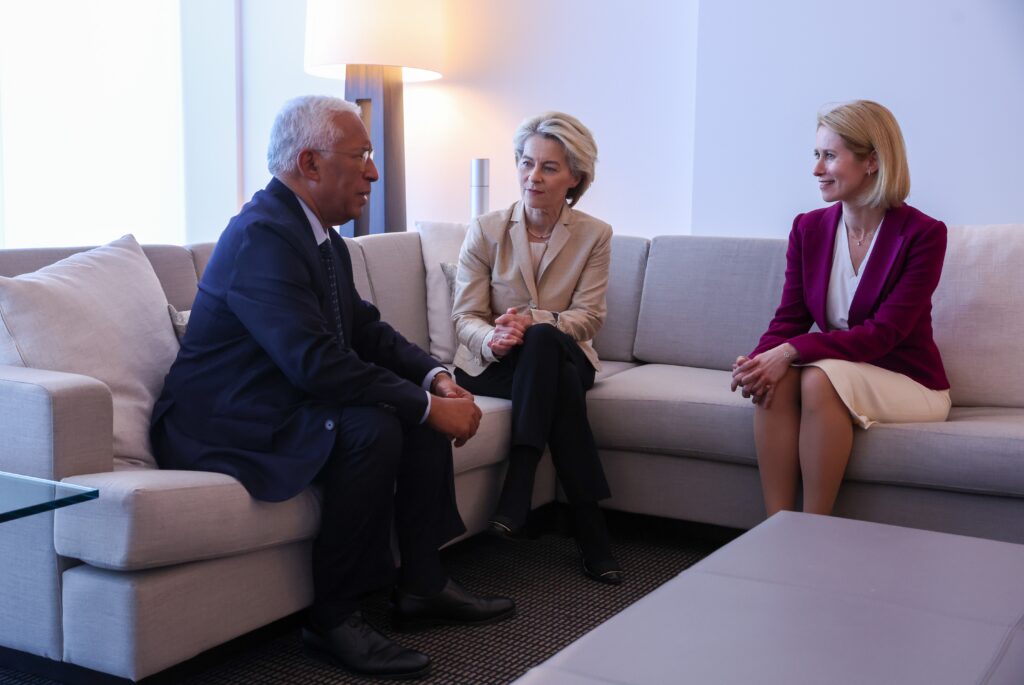
He pointed out that Kallas is the first high representative to have been a prime minister: “So, by default, you have already brought a view on things — you’ve been sitting around all the big tables.”
In her first week in office, Kallas has already struck a more hawkish tone than her predecessor, hinting that she could seek to put sanctions on members of the Moscow-friendly ruling party in Georgia if they were to crack down on demonstraters protesting what they say was a rigged election.
She also adopted a shift in tone on the conflict in Ukraine, traveling to Kyiv on her first trip as high representative and writing on social media that “the European Union wants Ukraine to win this war.”
For Kallas, the job appears to be coming at exactly the right time: just as her popularity at home has begun to wane.
The Estonian economy has just emerged from two years of recession, and is among the worst-performing in Europe. Her Estonian Reform Party, comfortably in the lead a year ago, has since been overtaken by the main opposition party.
Kallas’ local critics deride her as the ultimate nepo-baby, detached from the struggles of ordinary Estonians. The disdain seems mutual: Kallas has referred to media coverage of her husband’s business ties to Russia as a “witch hunt.”
“I hope the new job will offer a better balance,” said her brother, Ülo. “It’s still a tough job but in (domestic) politics you face constant criticism, negativity from all sides.”
Abroad, Kallas remains something of a media darling, charming many a reporter with her combination of unvarnished straight talk and high-brow love of literature (those who know her won’t have been surprised to hear her quoting Winston Churchill, David Ben Gurion and Plato during her commissioner hearing).
But how long will her international honeymoon last, as Putin continues to test Europe’s stamina and solidarity?
EU countries are also widely split on other key geostrategic issues — it’s not just Orbán’s Hungary throwing a spanner in the works of a united front. In the latest spat with China over electric vehicles, it was Germany that defended Beijing against France and Italy.
On the Middle East, Spain, Ireland and Slovenia have broken ranks with the rest of the EU to recognize Palestinian statehood, while Germany, Finland and the Czech Republic, among others, still trade arms with Israel.
Some have already criticized Kallas for immediately deciding to replace Stefano Sannino, the civil servant at the head of the EEAS, rather than relying on the Italian veteran as she learned the ropes.
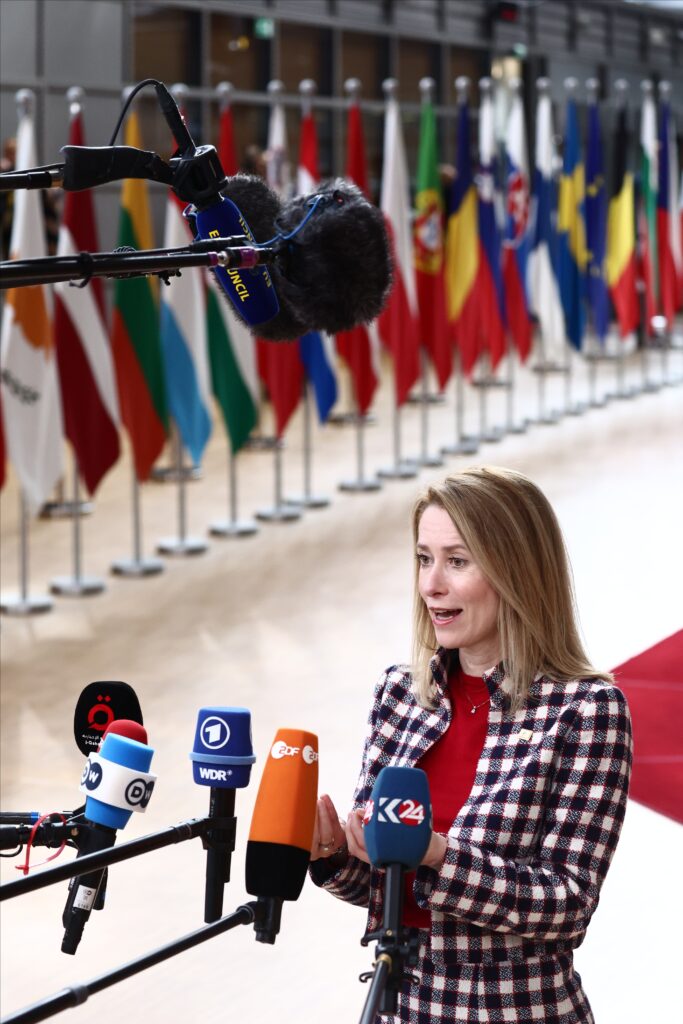
“Several member states were quite irritated about this decision,” said one EU diplomat of Sannino’s dismissal. “You don’t let the pilot disembark the ship when a new crew has to navigate stormy waters.”
Then there’s the biggest elephant in the room: Donald Trump. Eurocrats have vivid memories about how the first Trump administration killed off a proposed trade deal. This time around the fear concerns Ukraine, as Trump seems to be looking to score with a quick peace deal (presumably on terms favorable to Russia).
Offering a sneak peek at how she will deal with the next American administration, Kallas said during her hearing that “if the United States is worried about China, they should first be worried about Russia.” Adding later: “If we look to history, isolationism has never worked well for America.”
“The world is on fire,” she said during the same hearing. “So we have to stick together.”
The time may come when Kallas will be wishing for the good old days, when all she had to do was stare down the leaders of Germany and France.
